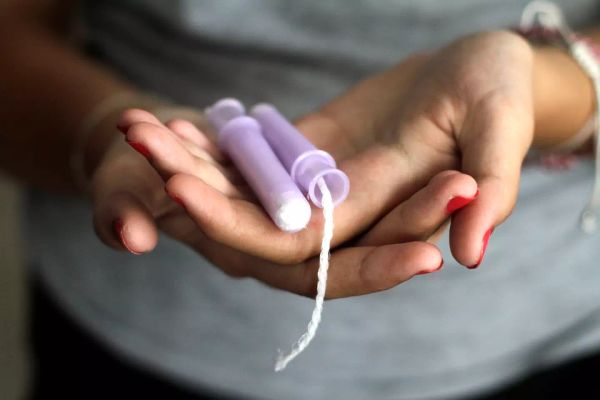We all know about toxic shock syndrome (TSS) and the fear that surrounds it. TSS is a rare but serious illness that can occur when an infection develops after leaving a tampon or menstrual cup in for too long. While TSS may sound terrifying, it’s important to note that there are only about 40 reported cases each year in the UK out of a population of about 60 million. So, while it’s rare, it’s still crucial to be aware of the risks and take preventative measures.

One woman who unfortunately experienced the devastating effects of TSS is Lauren Wasser, a model based in LA. In 2012, at the age of 24, Lauren contracted this life-threatening disease. She was found unresponsive and feverish, with a temperature of almost 42 degrees. With just a one percent chance of survival, Lauren was placed in a medically-induced coma. Miraculously, after a week, she woke up.

However, the consequences of TSS were severe for Lauren. Her legs had turned black with gangrene, and her right leg had to be amputated. After enduring six years of pain with just one leg, Lauren made the brave decision to have her remaining leg amputated as well. Now 36 years old, she uses her platform to raise awareness about the dangers of tampons and encourages others to educate themselves.
To protect yourself from TSS, it’s important to know the symptoms. The NHS describes TSS as a life-threatening condition that can develop rapidly. Symptoms include a high temperature, muscle aches, a sandpaper-like raised skin rash, and flu-like symptoms.

So, what can cause TSS? The NHS explains that TSS can occur due to various factors, including the use of tampons or menstrual cups, contraceptive diaphragms or caps, vaginal birth or caesarean section, and even infected cuts, wounds, boils, or burns. If you’ve had TSS before, your chances of getting it again are higher.

If you suspect you have TSS, it is crucial to seek urgent medical attention. Treatment may involve antibiotics to fight the infection, fluids to rehydrate your body, medication to control blood pressure, and even surgery to remove infected tissue. Prevention is key, and you can reduce your risk by:
- Washing your hands and following instructions when using tampons, menstrual cups, contraceptive caps, and diaphragms. Do not leave them in longer than recommended.
- Keeping cuts and burns clean and watching out for signs of infection, such as rash, swelling, or pain.
If you have previously experienced TSS, it is advisable to consult with your doctor before using tampons, contraceptive caps, or diaphragms.
Remember, while TSS remains a concern, it is relatively rare. By staying informed and taking necessary precautions, you can protect yourself and minimize the risk of contracting this serious illness.






